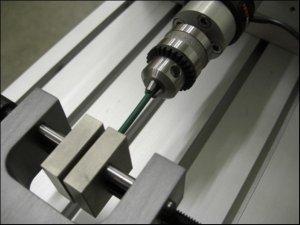
Torsion tests twist a material or test component to a specified degree, with a specified force, or until the material fails in torsion. The twisting force of a torsion test is applied to the test sample by anchoring one end so that it cannot move or rotate and applying a moment to the other end so that the sample is rotated about its axis. The rotating moment may also be applied to both ends of the sample but the ends must be rotated in opposite directions. The forces and mechanics found in this test are similar to those found in a piece of string that has one end held in a hand and the other end twisted by the other.
Learn more about Torsion Test Machines...
Purpose of torsion testing:
The purpose of a torsion test is to determine the behavior a material or test sample exhibits when twisted or under torsional forces as a result of applied moments that cause shear stress about the axis. Measurable values include: the modulus of elasticity in shear, yield shear strength, torsional fatigue life, ductility, ultimate shear strength, and modulus of rupture in shear. These values are similar but not the same as those measured by a tensile test and are important in manufacturing as they may be used to simulate the service conditions, check the product’s quality and design, and ensure that it was manufactured correctly.
Learn more about Torsion Test Fixtures...
Types of torsion tests:
The three common forms that torsion testing take include failure, proof and operational. A torsion test for failure requires that the test sample be twisted until it breaks and is designed to measure the strength of the sample. A proof test is designed to observe the material under a specified torque load over a set period of time. Finally, operational testing is measures the material’s performance under the expected service conditions of its application. All of these forms of tests may be performed with either torsion only loading or a combination of torsion and axial (tension or compression) loading depending upon the characteristics to be measured.
Learn more about Torsion Test Machines...
Types of materials:
Many materials experience torques or torsional forces in their applications and so will benefit from or require torsion testing. Materials used in structural, biomedical and automotive applications are among the more common materials to experience torsion in their applications. These materials may be composed of metals, plastics, woods, polymers, composites, or ceramics among others and commonly take the forms of fasteners, rods, beams, tubes and wires.
Learn more about Torsion Test Fixtures...
Selected Test Standards
- ASTM A938 Torsional Test of Wire
- ASTM D1043 Torsion Plastics Test Equipment
- ASTM D5279 Thermoset & Thermoplastic Dynamic Torsion Testing Machine
- ASTM E2207 Axial-Torsional Fatigue Thin-Walled Tubular Materials Test Equipment
- ASTM F383 Static Bend and Torsion Testing of Intramedullary Rods
- ASTM F543 Medical Bone Screw Torsion Test Equipment
- ISO 6475 Bone Screw Torsion Test Methods | Equipment
- ISO 7800 Metal Wire Torsion test
- ISO 80369-1 Axial Torsional Luer Connector Test Equipment
Selected Applications
- Torsion Test Equipment for Plastics
- Torsion Testing of Bone Screws | Equipment
- Torsion Testing of Wire | Equipment
- Torsion Tests on Engineered Composite Materials | Equipment
- Torsion Test Machine | Teaching Lab Academic Spotlight
- Torsional Test Machine with Static Axial Load
- Wire Torsion Strength Test | Equipment
검색 결과 17건
- 분류 : 만능재료시험기
